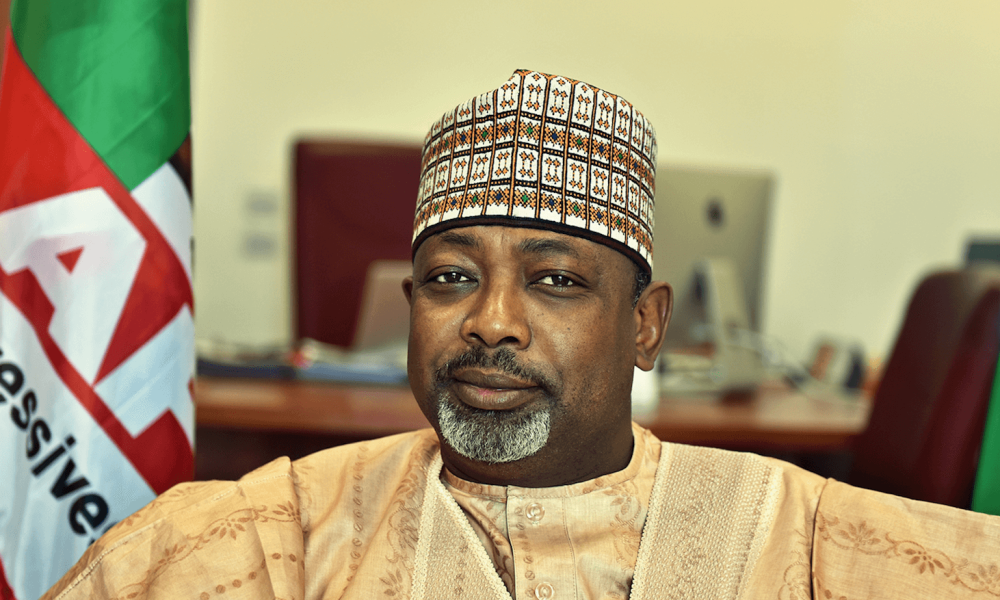The federal government has urged a joint effort to regulate genetically modified organisms (GMO) foods within the country.
This comes as experts caution about the potential risks of consuming genetically modified foods, highlighting their possible health effects on consumers.
During a public hearing in Abuja on Tuesday, organized by the House of Representatives Committee on Agricultural Production, the Minister of Agriculture and Food Security, Abubakar Kyari, assured that the Federal Government would take all necessary measures to protect the well-being of Nigerians.
Kyari emphasized that while the government, under President Bola Tinubu’s leadership, is dedicated to ensuring food safety and security, efforts will be made to find a balanced approach between those who support and those who oppose the use of GMOs.
He said, “The government will not deliberately bring what is poisonous to the people. This forum is meant for sharing ideas from GMO experts to find a level playing field for food security.
“There are seed councils and regulatory bodies in charge of checkmating seedlings used by farmers hence the need for a collaborative effort.”
During the public hearing, anti-GMO advocates, organized under the GMO-Free Nigeria Alliance, which includes approximately 200 individuals and organizations, voiced their concerns about the potential health and environmental risks associated with consuming genetically modified foods.
The group also called on the National Assembly to impose a total ban on GMOs, emphasizing that foreign entities determined to introduce GMOs into the country play a role in the ongoing insecurity challenges in Nigeria.
Inibehe Effiong, the group’s consultant, presented their memorandum to the Committee, urging the Federal Government to adopt a policy of ‘No to GMO and GMO distribution and circulation in Nigeria.’
He said,”We would like to see in the interim, while the argument is even going on, a national moratorium declared that even if they are not convinced that the adverse effects which majority of the experts have spoken eloquently to are obvious, even if they still want to go ahead with the investigation, pending when they conclude; GMO distribution and circulation in Nigeria should be halted.
“There is a perception that you can do to Nigerians whatever you want to do and nothing will happen. And that explains some of the institutional arrogance that we witness today. To the point that someone was so audacious as to say it is better to eat and die than not to eat and die.
“While we recognise the government’s efforts at improving food security in Nigeria, the adoption of GMOs as a silver bullet to agricultural challenges is an error. Continuing this path holds serious implications on Nigeria’s food sovereignty, on our biodiversity/environmental sustainability, and our health.”
Also speaking, a stakeholder, John Ekpere noted that in September 2024, the National Cotton Association of Nigeria reported that they “Did not record any significant increase in their yields compared to the local seed varieties. They added that instead, since the introduction of GM cotton seeds during the 2020/2021 farming season, yield per hectare remained almost the same.
“They also reported that no other plant has been able to germinate on the farmlands where the GM seeds were planted, even after four years.
“While some GMOs are designed to have increased levels of some nutrients, studies have revealed that other essential nutrients or functions can be reduced in the process. An in-depth scientific comparison of GM crops and their non-GM varieties shows that the assumption of substantial equivalence is false, as unexpected differences have been found.
Speaking to the press after the hearing, Mr. Qrisstuberg Amua, the Executive Director of the Centre for Food Safety and Agriculture Research, attributed Nigeria’s security issues to external influences.
He said: “In Benue State, the supposed food basket is becoming empty, not because Benue people are not producing food, not because they don’t have GMOs. It is because ethnic and foreign interests are taking over. GMOs are biological weapons and agents of mass destruction.
“They are pushing insecurity on our nation, sponsoring it clandestinely, and I challenge the national security apparatus to look deeply into this, investigating why our farmers can’t go to farms. But these people are ready to create a scenario of hunger to advertise genetically modified poisons.”

